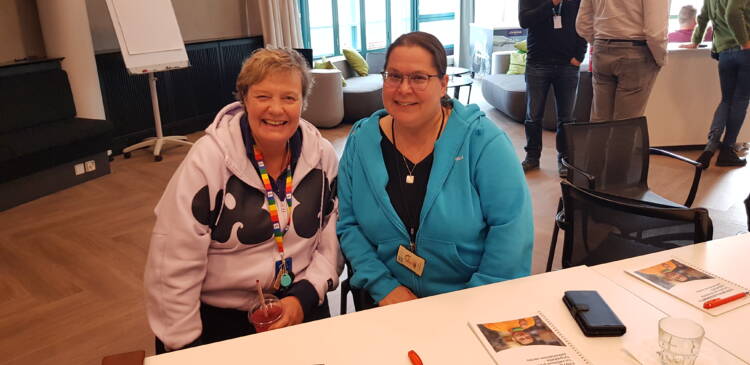Occupational Safety Card training for the development of occupational safety in creative productions

The Occupational Safety Card® is a national, standardised induction training on occupational safety issues in a shared workplace. The Occupational Safety Card was originally developed by Finnish industrial companies in co-operation with labour market organisations, the insurance sector and training organisations.
The Occupational Safety Card training is particularly well suited to the film and TV industry, events and other creative productions as support for occupational safety management, since productions typically constitute shared workplaces as mentioned above. According to the Occupational Safety and Health Act, a shared workplace means a workplace where one employer exercises the main authority and where more than one employer or independent contractor operates simultaneously or in succession. In these cases, the workers’ occupational safety management and the coordination of operations are more demanding than is normal. When a workplace is shared, the employers and independent workers have their own roles and occupational safety responsibilities. In a shared workplace, such as during the production process, the work of different employers and independent contractors affects the safety or health of other employees.
The best parts were the discussions, sector-specific materials and the trainers’ tasks done in pairs. It was very well suited to our sector. A real home run!
Yle’s occupational safety representatives Hilla Blomberg and Mirka Kainulainen
Today, the Occupational Safety Card can be completed in many different ways: in the form of online training, as a multimode implementation or through traditional classroom teaching. It is also possible to tailor the training to the company’s own needs, which many companies have done. A competent and knowledgeable course leader will be able to incorporate into the training those things the course participants need to support their professional skills and competencies, and the trainer will also use sector-oriented additional materials during the training.
The Occupational Safety Card training can be organised as training commissioned by the company or, alternatively, the course participants can participate in open training. An Occupational Safety Card course leader of the company’s own is also a reasonable solution in many cases.
The benefit of commissioned training is the opportunity to flexibly make the training day part of the development of the personnel’s occupational safety and health competence and the organisation’s occupational safety and health activities. It is easy to connect company- or client-specific practices and workplace-specific needs to the training. In open training, the participants’ different backgrounds and experiences of working life can be factors that enrich and diversify the training.
To obtain an Occupational Safety Card, the Occupational Safety Card course must be completed. The card is valid for five years. The use of an Occupational Safety Card is voluntary, but many contracting companies require the employees of their subcontractors to have one.
The objective of the Occupational Safety Card practice is to:
- improve practical co-operation between contracting companies and supplier companies in shared workplaces
- support induction training in shared workplaces
- provide basic information on occupational safety and health
- reduce overlapping training provided by different clients
- attract interest and motivation in the occupational safety competence of the company’s employees in the workplace
- reduce occupational accidents, incidents and harmful workloads
Sector-specific materials of creative productions deal with, among other things, the special characteristics in the work of creative productions and the working environment, the division of responsibilities, production planning, prevention of accident risks, the implementation of special effects, violence and combat scenes, workload and time management, good work behaviour, prevention and handling of sexual harassment or harassment based on sex or gender, and the safe implementation of scenes with violence, sex or nudity.
The project working group: Chief Specialist Päivi Rauramo, Senior Specialist Petri Pakkanen, Acting Teacher and Intimacy Coordinator Pia Rickman, Stunt Coordinator Reijo Kontio and Assistant Director Jouni Mutanen.
The steering group: representatives of the sector’s employers’ unions, workers’ unions, occupational safety and health administration and workplaces.
Further information

